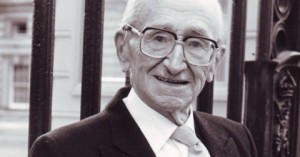The cacophony from the left [and its politically correct mainstream media mirror] calling for amity, negotiation, compromise and immediate action to solve the current crisis is not only hypocritical and insincere but ahistorical.
The American Republic was born and nurtured in conflict, not only on the battlefield but also in the world of ideas. No one who has read American history could deny the virulence of debate over fundamentals which initiated and always has characterized our political discourse. That it should be true today is not only logical but virtuous.
As always in a free environment, the U.S. polity is constantly in the midst of making fundamental decisions, whether they know it or not. But now an economic crisis has brought a studied reexamination of basic values and issues. It is only natural the discussion would be heartfelt and contradictory.

On one side, the Obama Administration brought to power the 60s generation. Despite their enormous impact on popular culture, they were defeated then in their attempts to reconstitute The Republic by substituting a pseudo-Marxian template. They now have slid into positions of power largely by happenstance of demography at a time a larger public is questioning the effectiveness of old formulae.
However much criticism Mr. Barack Obama gets from the left, the essence of their common worldview is cohesive: a strategy of redistribution of wealth through government fiat. It is left, therefore, largely to Republican nominees to untangle issues, however unsystematically.
In this process, confirming ideas never die, the old Rockefeller Republican – for lack of better nomenclature – hypothesis has resurfaced with gusto. The concept envisions a “correct” political party allied with powerful business interests as best able to lead to a prosperous and stable future. But in this period of severe economic crisis and unusually volatile politics, that ethos is challenged by a combination of old-fashioned populism and 19th century American constitutionalism calling for more radical approaches.
That conflict places candidates for the Republican nomination in critical competition, obscured often by personalities, “political professionalism”, accidents of region, ethnicity or race, and all the other accoutrements of mass communications politics — often trivia which unfortunately can decisively substitute for logical arguments. But Mitt Romney clearly represents that Rockefeller ghost in the argument [perhaps with a slight assist from his fellow Mormon Jon Huntsman, an irony not lost on those who recall the daring of their forefathers]. The business model, he argues, is what is needed to rescue The Republic.
That model, again he quite rightly argues, always comes with convoluted solutions to what are undeniably complex political and economic problems. But in the process, Gov. Romney loses his way, abandoning The Republic’s essence: freedom of choice for as many as possible, granted at the risk of occasional horrendous miscalculation.
Romney’s meandering represents why in politics, unlike everyday life and business, sound practice often means cutting to the heart of an issue. The U.S. economic disaster is, this writer would argue, basically the result of government meddling in the markets and the unforgiving, unavoidable boom and bust of the business cycle. No better example is apparent than the attempt to wish Americans into universal home ownership through the disastrous creation of semi-government, engorged mortgage brokers, Freddy Mac and Fanny Mae. It was, after all, the housing bubble as much as any other single factor which brought on the crisis.
Analogous was Mr. Romney’s attempt as Massachusetts governor to solve health insurance problems through mandate – appropriated by President Barack Obama in his own version on an eventual, clandestine trip to a national government health care system on the disastrous European and Japanese model. That too was typical of politicians who rely on business orthodoxy for success, attempting to imitate the CEO’s ability to command his organization’s cadre — so different from a heterogeneous world of democratic politics demanding persuasion above all else.
That moral as well as cognitive lapse illustrates, contrary to the calumny expounded on the left, why the high priests of laissez-faire such as Milton Friedman, Ludwig von Mise and particularly Friedrick Hayek saw free markets as an instrument of morality and altruism. And, contrarily, it is disguised alliances between politicians and their crony business partners [which, incidentally, nowhere is more exemplified than by the current Obama Administration], which is immoral as well as destructive of successful economic development.
Sol W. Sanders, (solsanders@cox.net), writes the ‘Follow the Money’ column for The Washington Times on the convergence of international politics, business and economics. He is also a contributing editor for WorldTribune.com and East-Asia-Intel.com.


You must be logged in to post a comment Login